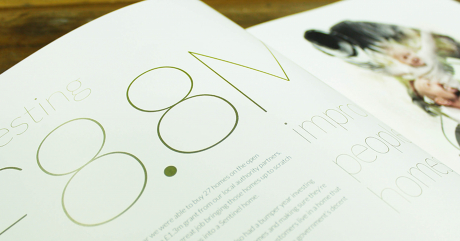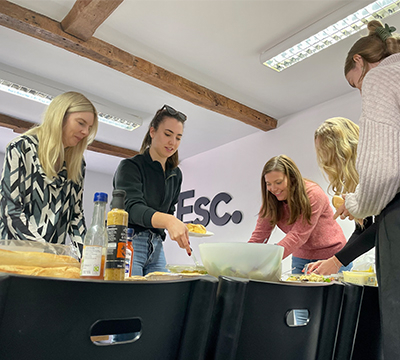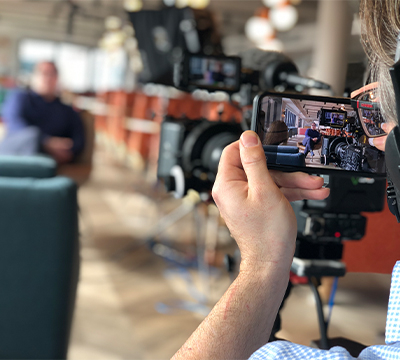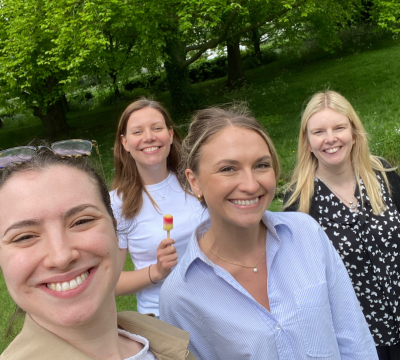
Insights The power of relationship marketing: How to build stronger connections for lasting success

In today's fast-paced and highly competitive business landscape, traditional marketing strategies are no longer enough to ensure sustained success. Add in the current financial crisis and brand loyalty can be one of the first bubbles to burst. We only need to look at the rise of budget supermarkets, Aldi and Lidl to see this in action.
Enter relationship marketing, a dynamic approach that focuses on nurturing strong, meaningful connections with customers. As businesses strive to stand out and engage their target audience, the importance of relationship marketing cannot be overstated. Whilst relationship marketing seems to have been a bit of a buzzword over the last couple of years, in this blog we’ll explore how, when done well, it can transform your business by fostering loyalty, driving growth, and enhancing brand reputation.
What is relationship marketing?
Relationship marketing is very much a long-term game that requires time, much like any sort of relationship you or I might have. It’s not something that flourishes overnight, but something that requires effort and nurturing. It focuses less on short-term, individual sales, and much more on retention. So don’t go thinking that you can dabble in relationship marketing for a couple of months and expect to reap the benefits!
Connection or relationship?
Something relationship marketing asks of us, as marketers, is to distinguish between a somewhat superficial ‘follow’ or ‘connection’ we might make with a customer, on social media for example, and a ‘relationship’. Relationship marketing has a strong focus on creating an emotional, long-term relationship with customers on either end of the sales funnel which, in turn, helps build stronger brand loyalty. Long-term customers are less likely to churn and can be more profitable over time. So while it might not result in a swift increase in sales, it lays the groundwork for better, steadier sales over time.
What are the benefits of relationship marketing?
1. Establishing authentic connections
At the heart of relationship marketing lies the principle of building genuine, two-way relationships with customers. It's about moving beyond transactional interactions and creating meaningful engagements that resonate with individuals on a personal level. By taking the time to understand your customers' preferences, pain points, and aspirations, you can tailor your marketing efforts to meet their specific needs. This level of personalised attention not only boosts customer satisfaction but also helps you establish a brand identity that customers can truly connect with.
2. Fostering customer loyalty
One of the most significant advantages of relationship marketing is its ability to cultivate customer loyalty. When customers feel valued and understood, they are more likely to remain loyal to your brand. Loyalty goes beyond making repeat purchases; it transforms customers into brand advocates who willingly promote your products or services to their networks. Satisfied and loyal customers become an invaluable asset, contributing to your business's long-term growth through referrals and positive word-of-mouth marketing.
3. Enhancing customer lifetime value
Relationship marketing extends the customer lifecycle beyond the initial sale. By consistently engaging with your customers and offering them relevant and valuable experiences, you can increase their lifetime value. Repeat purchases, upsells, and cross-sells become more achievable as customers trust your brand and rely on your expertise. This extended customer lifetime value translates into higher revenue and better overall business performance.
4. Building brand resilience
In an era where consumer choices abound, brand reputation is a critical factor that can make or break a business. Relationship marketing helps in building a positive brand image by focusing on customer satisfaction and delight. When customers feel cared for and supported, they are more forgiving of occasional missteps and are more likely to maintain a positive perception of your brand even during challenging times. This resilience is essential for weathering market fluctuations and maintaining a competitive edge.
5. Gathering actionable insights
Effective relationship marketing involves ongoing communication and feedback loops with customers. This consistent interaction not only strengthens relationships but also provides a wealth of insights that can shape your business strategies. By actively listening to your customers' feedback, preferences, and concerns, you can gain a deeper understanding of market trends and shifts. These insights can inform product development, marketing campaigns, and overall business decisions, helping you stay ahead in a rapidly changing landscape.
6. Personalised experiences drive engagement
In an age where consumers are bombarded with generic advertisements, personalised experiences stand out. Relationship marketing enables you to tailor your communications and offerings to match individual customer profiles. Whether it's sending personalised recommendations based on purchase history or addressing customers by their names, these small touches can significantly enhance engagement and foster a sense of belonging.
7. Navigating hyper-connectivity
With the rise of social media and digital platforms, customers expect real-time interactions and immediate responses. Relationship marketing empowers you to meet these expectations by staying active and engaged across various communication channels. Prompt responses to customer inquiries, addressing concerns, and acknowledging positive feedback all contribute to a sense of being heard and valued.

Let’s take a look at who’s doing it well…
While ‘traditional’ marketing often focuses on a specific feature of a product or service, relationship marketing focuses on the benefits and value of said product or service and how that product or service will help or better the customer's life in some way. The customer service aspect has a much larger weighting in relationship marketing as it has much higher customer or prospective customer contact levels.
A good example of relationship marketing that’s used by many companies is the good old loyalty programme. The big airlines do this particularly well. British Airways does this to such an extent that not only do they offer air mile rewards with their loyalty scheme, but they also give the opportunity to get more BA points via their e-shopping platform and American Express credit cards. With all of these, they are interjecting into a variety of different aspects of customers’ lives - from holidays to shopping, to money. They really encompass the idea that points mean prizes!
So, in summary…
Relationship marketing has evolved from being a mere buzzword to a fundamental strategy that can shape the success of your business. In a world where customers are seeking more meaningful and emotional connections, businesses that prioritise building authentic relationships are poised to thrive. By focusing on customer satisfaction, loyalty, and engagement, relationship marketing transforms transactions into interactions and customers into advocates. In this way, businesses can create a solid foundation for long-term success while adapting to the ever-changing dynamics of the modern market. In the current landscape, brands may be hoping to gun for the quick sale, which is great in the short term, but these customers won’t have loyalty to your business so will likely churn just as quickly as they bought.
At The Escape, we’re total believers in the power of connections, which is why relationship marketing is so close to our hearts. It requires time and effort (and as a result, money), however, if you do it right; build trust, show some personality, inspire confidence and deliver quality customer service (and have a bit of patience), you should really reap the benefits and have stronger sales and customer retention as a result.
Share insight
Let's talk
- Call us +44 (0) 1256 334567
If you would like to find out more about how we can help you connect strategically, creatively or digitally, then call us or get in touch. We’d love to hear from you.













